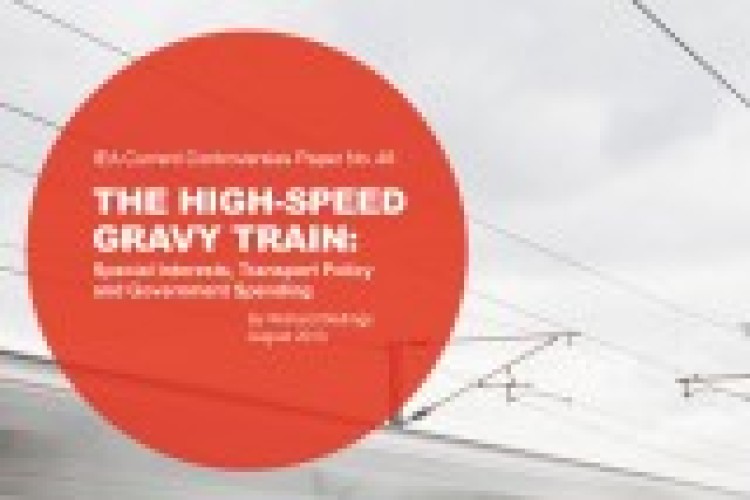Research for the report, published today by the Institute of Economic Affairs (IEA), says that HS2 could end up costing taxpayers double the current estimate. Estimates already put the project at £43bn. IEA says that adding the £7.5bn cost of new trains as well as the additional £30bn it has identified takes the total close to £80bn, or £3,000 per household.
IEA recommends that the government should cancel HS2 and ideally use the money to reduce taxes. However, if rather than reducing taxes the state does continue to spend on new infrastructure, the schemes boasting the highest benefit-cost ratios (BCRs) should be built first.
The report’s author Dr Richard Wellings said: “It’s time the government abandoned its plans to proceed with HS2. The evidence is now overwhelming that this will be unbelievably costly to the taxpayer while delivering incredibly poor value for money. It’s shameful that at a time of such financial difficulty for many families the government is caving in to lobbying from businesses, local councils and self-interested politicians more concerned with winning votes than governing in the national interest.”
The IEA predicts that lobbying from local authorities for new links to HS2 stations and changes to the route to keep voters on side are likely to add around £30bn to the overall cost of the project.
The report, The high-speed gravy train: special interests, transport policy and government spending, also says that the true long-term cost to the economy is even higher. It says that HS2 will divert funds from high-return transport projects that could have delivered over £300bn of benefits.

It says that the additional £30bn in costs comes from lobbying will mean giving the green light to additional infrastructure, such as various new rail links, tram lines and road upgrades to cope with the additional pressure on infrastructure along the HS2 route. There will also be design changes, it says, such as extra tunnelling to ‘buy off’ opposition. It also predicts taxpayer-subsidised regeneration schemes around the new stations and in towns that are bypassed by the line.
IEA says that both HS2 and the ‘add-on’ transport schemes will be heavily loss-making in commercial terms – hence the requirement for massive taxpayer support. “Even the government’s own estimates of the costs and benefits suggest the schemes are poor value for money compared with alternative investments in transport infrastructure,” says IEA.
“The decision to build HS2 is partly the result of lobbying by special interests,” it says. “These include city councils in urban centres connected to the route, train manufacturers and other rail/engineering firms - all concentrated interests who stand to gain from the project going ahead.”
It also believes that there are strong political reasons for the Conservative Party to have pursued this project, saying that support for HS2 appears to have been closely related to its decision to stop the expansion of Heathrow Airport.
Got a story? Email news@theconstructionindex.co.uk
.png)


